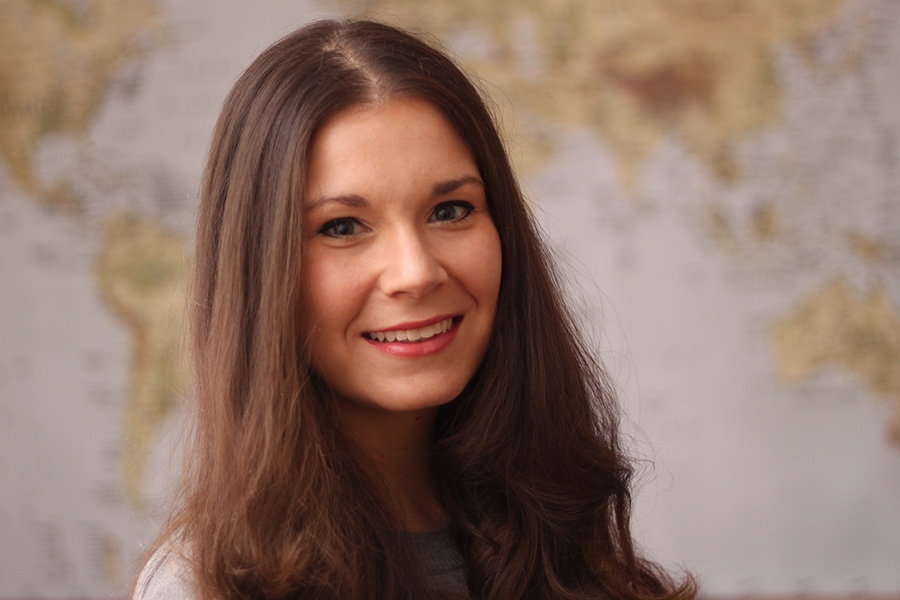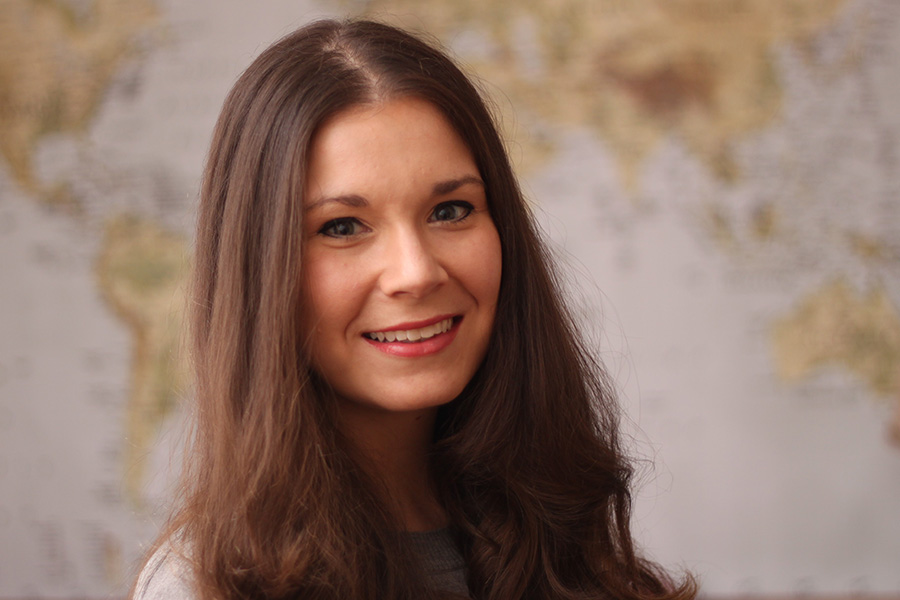
 |
Put simply, Jackie Knee wants to make people healthier.
She’s worked at that singular goal in rural Thailand as a Fulbright Fellow, in the United States at the Center for Disease Control and Prevention, and at Georgia Tech as a fifth-year Ph.D. student in environmental engineering. Once she finishes her degree later this year, she’ll continue it in Britain as the 2019 Marshall Sherfield Fellow.
“The burden of infectious enteric disease is too high and disproportionately affects the most vulnerable worldwide — young children, the elderly, and the poor,” Knee said. “I have worked in the [water, sanitation and hygiene] sector for over 10 years because I have seen the progress that has been made in terms of disease reductions, and I want to help ensure that progress continues.”
The Marshall Sherfield Fellowship offers one engineer or scientist from the United States the chance to do postdoctoral research in the United Kingdom for up to two years. Knee has proposed several new avenues of inquiry as the fellow, including tracking microbial exposure risk in the food chain.
“The idea is to understand when, where and how food becomes contaminated and to quantify exposure risks to consumers in Mozambique and Kenya,” said Knee, who works with Carlton S. Wilder Assistant Professor Joe Brown. “These data will then be used to inform the design and implementation of an intervention aimed at decreasing exposure and health risks.”
|
Generally, Knee focuses on how pathogens in the environment get into people’s digestive tracts and make them sick. She also studies the ways we try to limit that exposure, looking for the strategies that lead to the lowest human health risks.
“Before coming to Georgia Tech, I had spent years studying the transmission of waterborne and enteric pathogens and human exposures and health risks from the perspective of a microbiologist,” she said. “Part of the reason I chose to do a Ph.D. in environmental engineering was so that I could view these problems from a new perspective.”
Knee will work at the London School of Hygiene and Tropical Medicine with the fellowship, in part because it’s one of the world’s oldest and most respected schools of public health, but also because it offers her the chance to focus on new skills.
“I also hope to expand my background in epidemiology and biostatistics, and there are few better places in the world than LSHTM to learn and practice these skills,” she said.
At Tech, Knee has been working on a three-year evaluation of whether implementing improved sanitation services in Maputo, Mozambique — like latrines — actually improve the health of young children in low-income neighborhoods.
Brown, her adviser, said Knee is the driving force behind the project — and the most talented young colleague he’s ever encountered at this stage of her career.
“Jackie brings an impressive level of dedication and passion to her work, really inspiring all of us in my research group. Her Ph.D. work — where she has applied new approaches to measuring sanitation-related infectious disease — represents an outstanding contribution in terms of advancing our understanding of how infrastructure influences health outcomes among the world’s most vulnerable populations,” he said.
“Jackie will go on to do great things in the field. I look forward to the contributions she will make as she continues to grow as a researcher.”
Knee called the fellowship a great honor and saw it as an endorsement, more broadly, of her efforts to make people healthier.
“It’s wonderful to be recognized for years of hard work, but also, it’s encouraging to know that the fellowship committee believes not only in me but in the importance of the type of work I do,” she said. “Winning the Marshall Sherfield means I get to continue working on subject matter that is important to me, but I have more freedom to define the direction of my work and be a bit more explorative in my research endeavors.”
